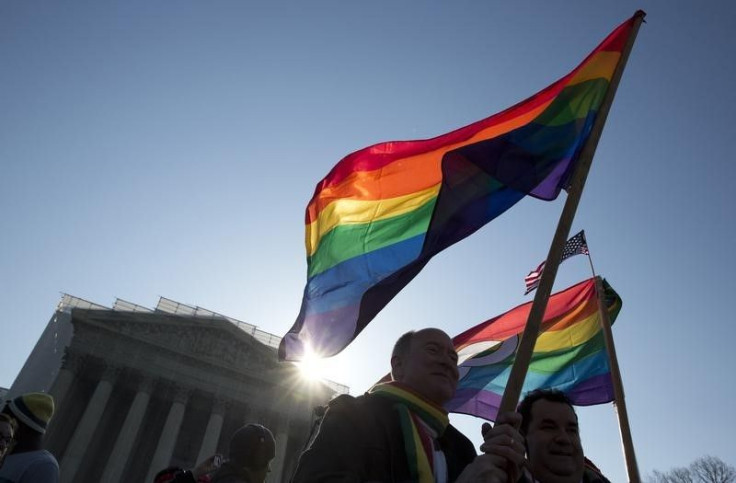Transgender People Wishing To Change Birth Certificates Face Legal Challenges, NYC Bill Aims To Eliminate Surgery Requirement

New York City Councilman Corey Johnson, D-Manhattan, introduced a bill on Tuesday to eliminate the surgery requirement for transgender people who want to change the sex designation on their birth certificates to reflect the gender with which they identify. Instead, he advocates for affidavits from a licensed health care provider (including nurses and social workers), stating that the sex designation on the applicant’s current birth record does not match the applicant’s authentic sex.
The New York Department of Health will also propose new regulations mirroring the legislation. Although New York state amended the surgical requirement in June, New York City issues its own birth certificates and still requires proof of surgery.
Gender dysphoria is the clinical term for the condition of feeling that one’s emotional and psychological identity as male or female, along with the gender roles associated with that sex, is opposite from the biological sex one is assigned at birth. Current treatment for gender dysphoria can involve surgery, hormone therapy and, in some cases, therapy only.
The American legal system still has some catching up to do in addressing the concerns of transgender individuals. Right now, the laws are inconsistent regarding the requirements needed to change the sex designation on a birth certificate. Most states will amend birth certificates with proof of sex-reassignment surgery, but in Idaho, Ohio and Tennessee, officials will not change the sex designation even if applicants show proof of sex-reassignment surgery, according to a Lambda Legal breakdown of state-by-state guidelines. (Lambda Legal advocates for lesbians, gay men, bisexuals, transgender people and people living with HIV.)
California, Iowa, New York state, Oregon, Vermont, Washington state and Washington, D.C., do not require surgical proof, but they do require that the applicant has received some form of gender-reassignment treatment, be it hormonal or surgical. In January of this year, Oregon passed HB 2073, updating its laws to remove the surgery requirement for birth certificate amendments. To amend an Oregon birth certificate, a person first needs to get a change of gender court order, which requires a letter from a health care provider stating that s/he has undergone "appropriate clinical treatment and completed sexual reassignment." Oregon, defines “sexual reassignment” as surgical, hormonal or other treatment appropriate for the individual for the purpose of gender transition, including therapy.
Under Johnson’s bill, transgender New Yorkers could change their documents without getting sex-reassignment surgery or hormone therapy. “It’s the most progressive policy in the entire country,” Johnson told to the New York Daily News. “Gender won’t be about your physicality. It won’t be about your body. It’s about how you identify.”
Even in states that will amend birth certificates with proof of surgery, a few require that a note be made on the birth certificate indicating that it was amended. Maine, Missouri, Montana, Nevada, North Dakota and Utah all require such a note. North Dakota even requires that the original birth certificate be put into a “special file,” and Utah, rather than issuing new birth certificates, amends the older certificates "directly on the face of the document, with all the changes visible." This last requirement could be seen as nullifying the purpose of the birth certificate change in the first place, opening up the person who uses their birth certificate to discrimination and harassment.
“A birth certificate is a fundamental form of identification,” wrote Michael Silverman, executive director of the Transgender Legal Defense & Education Fund, in a press release. “Yet New York City’s existing policy makes it all but impossible for transgender people to get birth certificates that reflect their true identities. It requires surgical procedures that most transgender people have not undergone, either because of discriminatory health insurance exclusions that make such procedures unaffordable, or because such procedures are medically inappropriate for some people.” In an interview with International Business Times, Silverman stated that "gender dysphoria manifests itself differently for different people, and what is considered 'appropriate treatment' should be between doctor and patient."
Carrie Davis, chief programs and policy officer at the Lesbian, Gay Bisexual & Transgender Community Center told the New York Daily News, “When people’s gender isn’t portrayed accurately, it causes problems. They get turned down from jobs.... They may be accused of fraud, turned away, harassed and attacked. In the best cases, they face embarrassment, confusion and delays.” The National Transgender Discrimination Survey, in a recent report, found that 40 percent of transgender people have said that they faced discrimination because of mismatched documents.
The New York City Board of Health is expected to vote on whether to adopt these new regulations put forth by the Department of Health and Mental Hygiene when it meets again on Dec. 9.
© Copyright IBTimes 2024. All rights reserved.






















